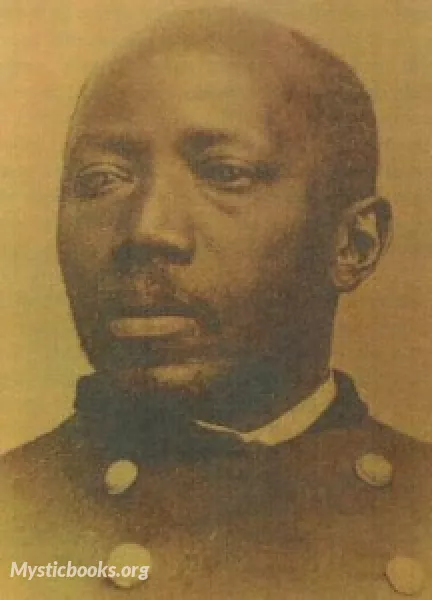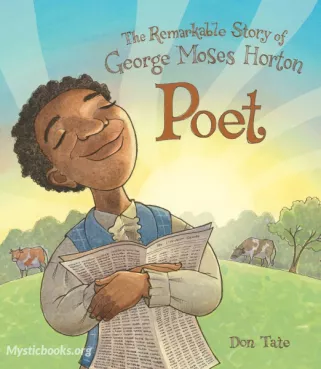
Timeline
Title
Country/Nationality
George Moses Horton
George Moses Horton was an exceptional African American poet who lived during the 19th century. Born into slavery in North Carolina, Horton defied the oppressive circumstances of his time to become one of the first African American writers to gain recognition for his literary talents. His life and works serve as a testament to the power of perseverance, creativity, and the pursuit of knowledge.
Horton's principles were deeply rooted in the belief in the transformative power of education and the written word. Despite being denied formal schooling due to his enslaved status, he taught himself to read and write, showcasing his determination to overcome the limitations imposed upon him. Horton's passion for learning and literature led him to compose his own poetry, expressing his thoughts, emotions, and experiences.
George Moses Horton became famous for his poetry, which captured the struggles and aspirations of the African American community during a time of intense racial inequality. His verses resonated with readers, drawing attention to the injustices faced by enslaved individuals and advocating for their freedom. Horton's poetry also explored themes of love, nature, and the human spirit, showcasing his ability to delve into universal human experiences.
Notable works by George Moses Horton include his book of poetry titled "The Hope of Liberty," published in 1829. This collection gained recognition and was met with critical acclaim, earning him patronage from influential figures of the time, including university professors and prominent politicians. His poetic talent and the publication of his works brought Horton national recognition, despite the challenging circumstances he faced as a slave.
Horton's philosophy centered around the belief in the transformative power of literature and the importance of education. He saw poetry as a means to elevate the human spirit, challenge societal norms, and inspire change. Horton's writings served as a form of resistance, giving voice to the marginalized and advocating for their freedom and equality.
George Moses Horton passed away in 1884, leaving behind a legacy that continues to inspire generations. He is remembered as a groundbreaking African American poet who defied the constraints of slavery and achieved recognition for his literary talents. Horton's courage, perseverance, and dedication to education paved the way for future generations of African American writers and artists.
An interesting fact about George Moses Horton is that he used to travel to the University of North Carolina in Chapel Hill, where he would sell his poems to students and faculty. His presence on the campus and his poetic talents earned him the nickname "The Black Bard of North Carolina." This recognition not only highlighted his poetic abilities but also challenged the prevailing prejudices and stereotypes of the time.
In conclusion, George Moses Horton was a remarkable African American poet who defied the constraints of slavery and made significant contributions to the world of literature. Through his poetry, Horton advocated for freedom, justice, and equality, leaving a lasting impact on the literary landscape. His life and works continue to inspire and serve as a testament to the power of the written word in overcoming adversity and fighting for social change.
Books by George Moses Horton

Poems by a Slave
It is a captivating collection of poetry that offers a unique perspective on the experiences and emotions of a remarkable individual. This book provides a powerful voice to a marginalized community and sheds light on the resilience and creativity of...